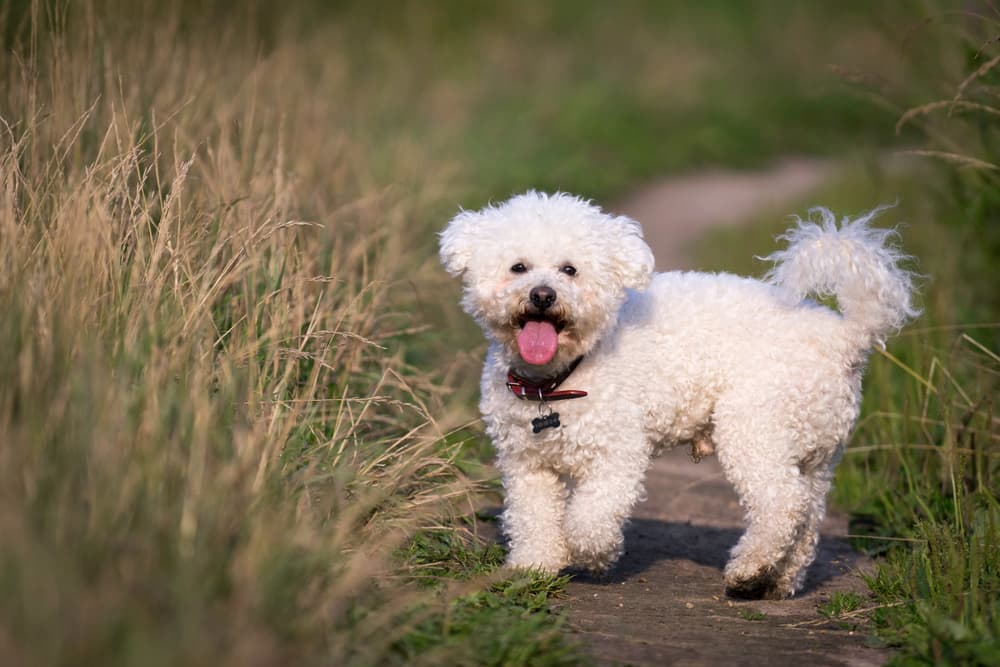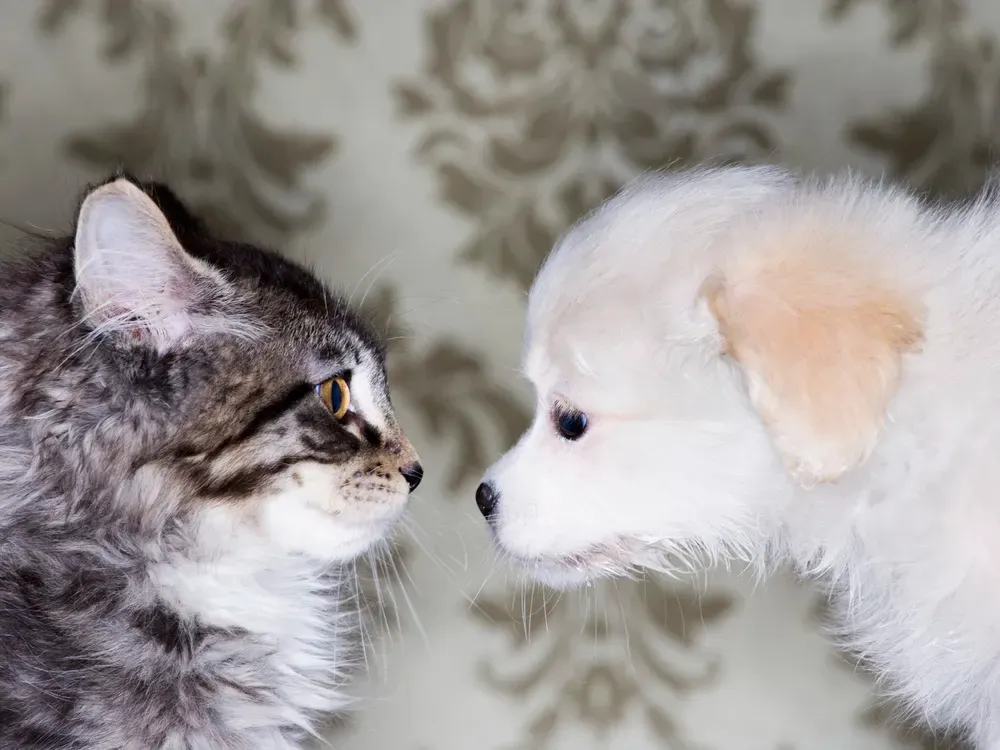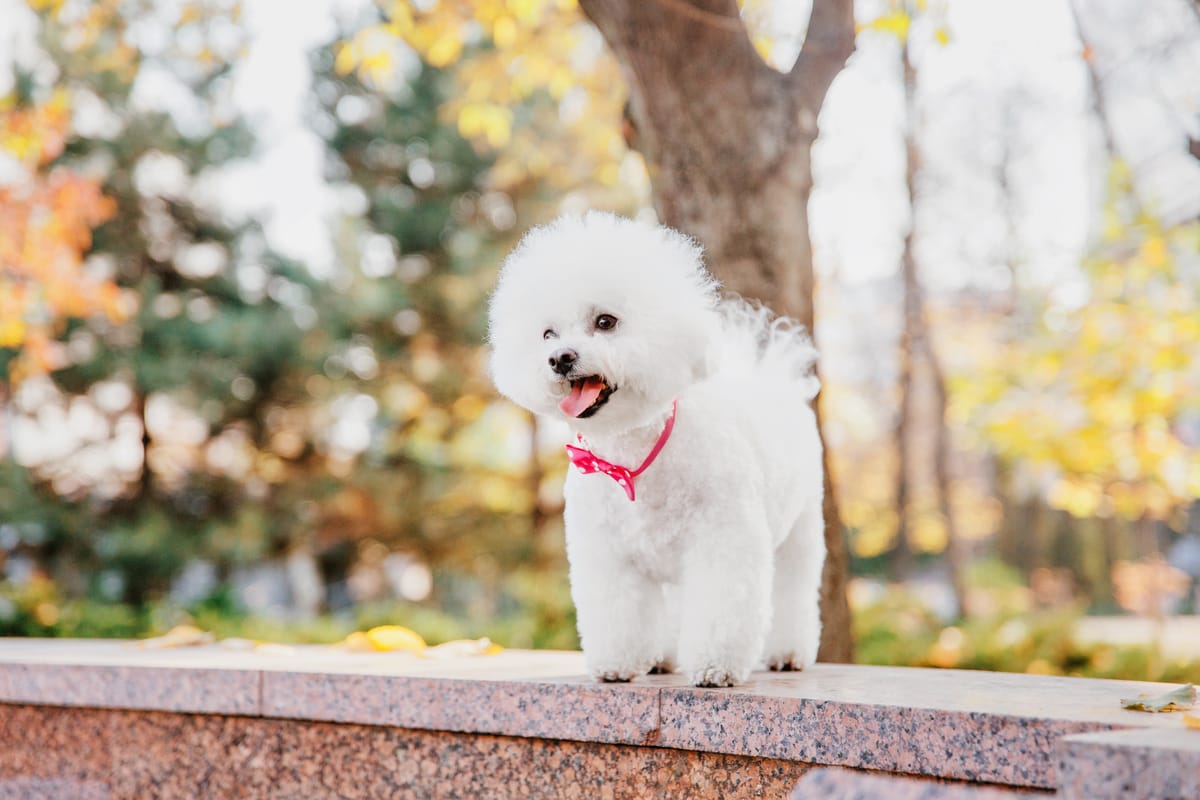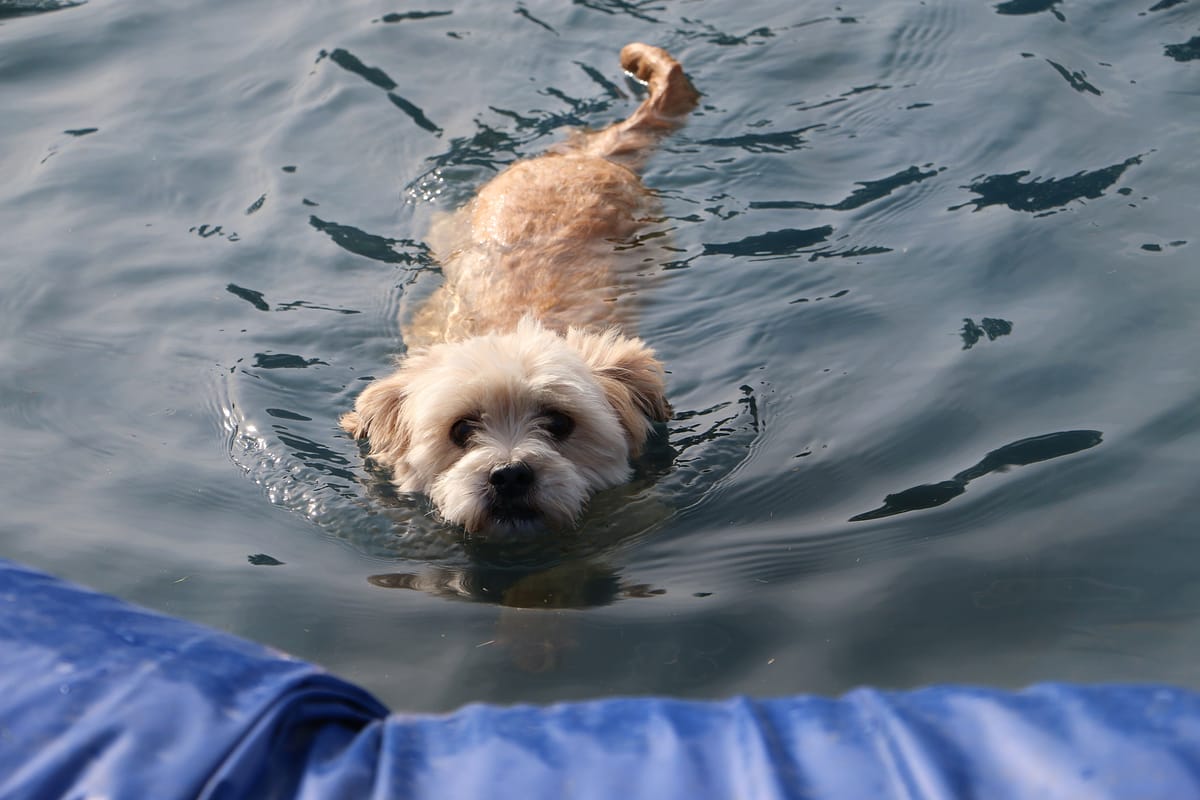When it comes to delightful and affectionate canine companions, the Bichon Frise stands out as a breed known for its endearing qualities and charming appearance. Originating from the Mediterranean, this small-sized dog has won the hearts of many dog lovers worldwide.
In this article, we'll delve into the history, characteristics, grooming needs, training tips, and more about the beloved Bichon Frise breed.
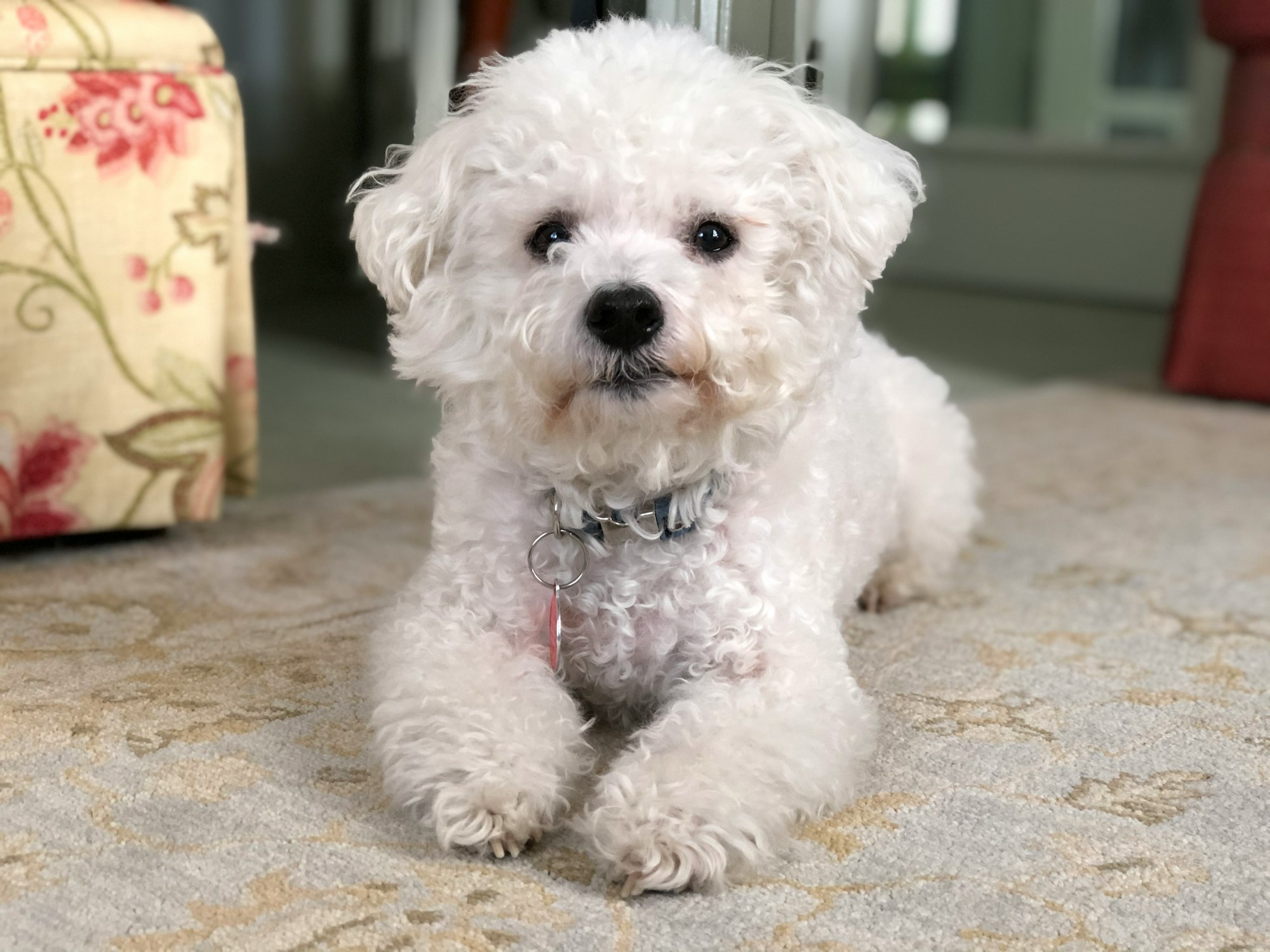
History and Origin
The Bichon Frise's roots can be traced back to the Mediterranean region, where they were adored by sailors and traders for their cheerful nature and adaptability to various climates. These dogs often found themselves aboard ships, making them well-traveled companions. Over time, the breed evolved into the charming, hypoallergenic companions we know today.
Distinctive Appearance
The Bichon Frise boasts a truly distinctive appearance that sets it apart from other breeds. Its most prominent feature is its luxurious, curly white coat that gives it a cloud-like appearance. This coat is not just for show; it serves a practical purpose as well. The dense curls protect against harsh weather conditions, acting as a natural insulator.
The Bichon's coat is not only visually striking but also hypoallergenic, making it a popular choice for individuals with allergies. This unique quality has contributed to the breed's popularity among those seeking a furry companion without the typical allergic reactions associated with dogs.
With its compact size, the Bichon Frise exudes an air of elegance and grace. Standing at around 9 to 11 inches in height and weighing between 12 to 18 pounds, it's the perfect size for both city dwellers and those with spacious yards.
Friendly Temperament
A heartwarming trait that endears the Bichon Frise to many is its friendly and affectionate temperament. These dogs have an innate ability to form strong bonds with their human families, often becoming beloved members of the household.
Bichon Frises are renowned for their sociable nature, and they thrive on human interaction. They have an uncanny ability to sense and respond to the emotions of their owners, offering comfort and companionship during both joyous and challenging times. This makes them excellent therapy dogs, providing emotional support to those in need.
Their amicable disposition extends beyond their immediate family. Bichon Frises tend to get along well with children, other pets, and even strangers. Their naturally cheerful demeanor and willingness to play make them a hit at social gatherings and dog parks.
In addition to their friendliness, Bichon Frises are known for their playful antics and curious nature. They are always up for a game of fetch, a brisk walk, or simply cuddling up on the couch for some quality bonding time. Their adaptable nature allows them to fit into a variety of lifestyles, from active adventurers to cozy homebodies.
Grooming Requirements
The Bichon Frise's exquisite appearance comes with a responsibility: regular grooming. Their stunning white coat may appear low-maintenance, but it requires dedicated care to keep it looking its best. The fine, curly hairs can quickly become tangled and matted if not properly tended to.
To maintain their coat's health and beauty, a consistent grooming routine is essential. This includes daily brushing to prevent tangles and mats from forming. Additionally, scheduling professional grooming appointments every 4 to 6 weeks will help keep their coat trimmed and neat.
Bathing should also be a part of their grooming regimen, but not too frequently, as excessive bathing can strip their coat of natural oils. Aim for a bath every 3 to 4 weeks, using a mild dog shampoo to keep their coat clean and fresh. Regular ear cleaning, teeth brushing, and nail trimming are equally important aspects of their grooming routine.
Health Considerations
While the Bichon Frise is generally a healthy and robust breed, like all dogs, they can be prone to certain health issues. Responsible pet ownership includes being aware of these potential concerns and taking steps to mitigate them.
One common health consideration is dental health. Bichon Frises are prone to dental problems, so regular teeth brushing and dental check-ups are vital to prevent issues such as tartar buildup and gum disease.
Allergies are another concern to watch for, especially skin allergies. Their sensitive skin can react to environmental allergens, leading to itching and discomfort. A nutritious diet, regular grooming, and consultation with a veterinarian can help manage and alleviate these issues.
Like many small white dog breeds, Bichon Frises can be susceptible to joint problems such as patellar luxation, where the kneecap dislocates. Regular exercise and maintaining a healthy weight can help support their joint health.
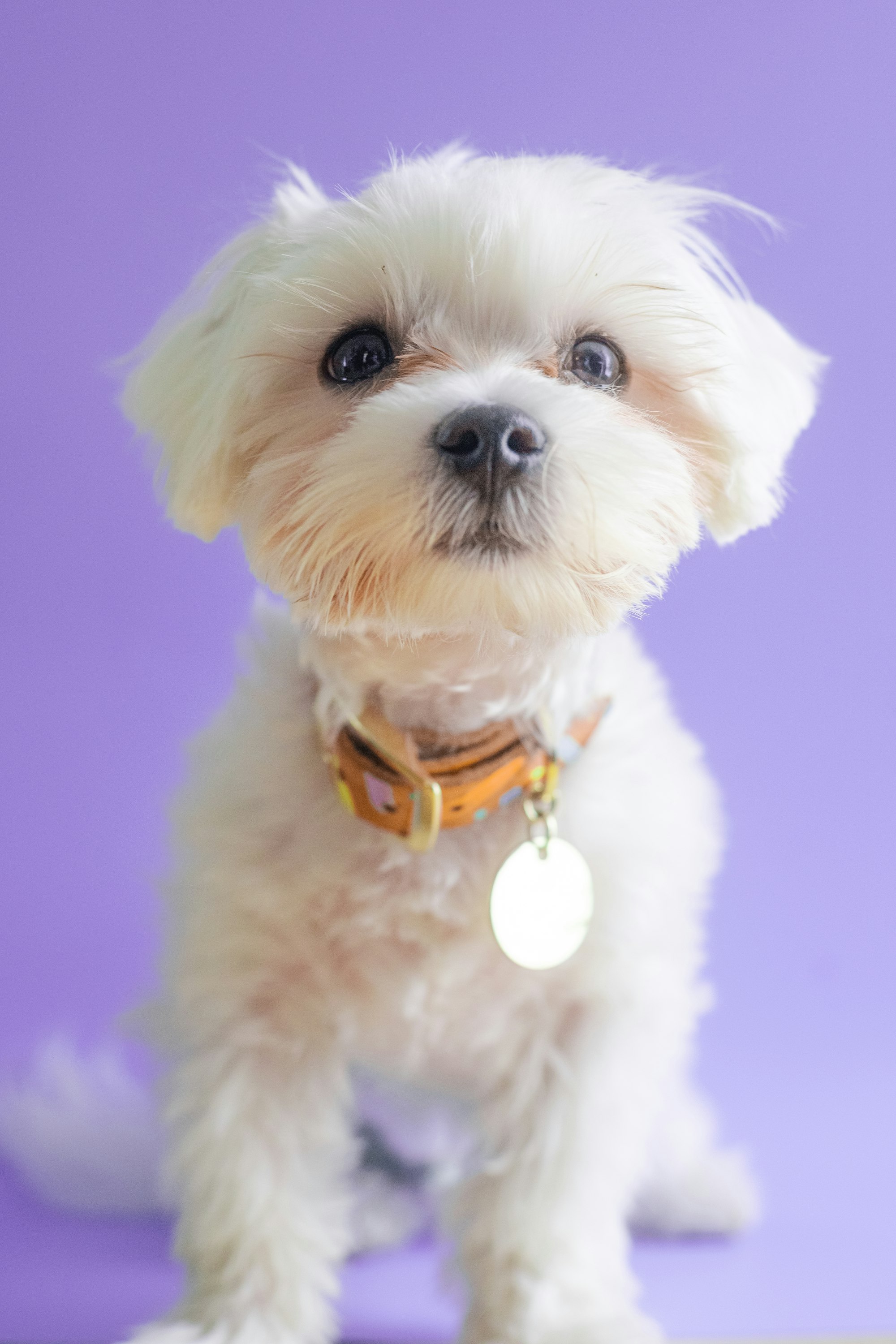
Training Strategies
Training a Bichon Frise is a delightful experience due to their intelligence, eagerness to please, and friendly disposition. Positive reinforcement is the cornerstone of effective training for this breed. Use treats, praise, and interactive dog toys as rewards for good behavior to keep them motivated and engaged.
Start training from a young age to establish good habits and prevent any undesirable behaviors from taking hold. Basic commands such as sit, stay, come, and leash walking are essential for their safety and your peace of mind.
Socialization is equally important. Introduce your Bichon Frise to a variety of people, animals, and environments to ensure they grow up to be well-adjusted and confident companions. Enrolling them in puppy classes or socialization groups can provide valuable exposure and learning experiences.
Remember, patience and consistency are key when training a Bichon Frise. They thrive on positive interactions and will eagerly respond to your guidance. With dedication and love, you can shape your Bichon Frise into a well-mannered and delightful member of your family.
Socializing Your Bichon Frise
Socialization is a critical aspect of raising a well-rounded and confident Bichon Frise. Early and positive exposure to various people, animals, sounds, and environments helps prevent shyness and separation anxiety later in life. Here's how to effectively socialize your furry friend:
- Puppy Playdates: Arrange playdates with other friendly dogs to help your Bichon Frise learn proper canine communication and interaction.
- Meet and Greet: Introduce your pup to different people of varying ages, ensuring positive interactions with strangers.
- Novel Experiences: Expose your Bichon Frise to different environments like parks, streets, and stores, allowing them to become comfortable with new surroundings.
- Positive Reinforcement: Reward calm behavior and curiosity during socialization outings to reinforce positive associations.
Exercise Needs
Despite their small size, Bichon Frises have a surprising amount of energy and need regular exercise to stay healthy and happy. Here's how to cater to their exercise needs:
- Daily Walks: Take your Bichon Frise on daily walks to provide mental stimulation and physical exercise.
- Interactive Play: Engage in interactive games such as fetch, tug-of-war, and puzzle toys to keep them mentally engaged.
- Dog Sports: Consider activities like agility, obedience, and even canine dancing to challenge their intellect and keep them active.
- Playtime: Dedicate time each day for play and bonding to satisfy their need for companionship and activity.
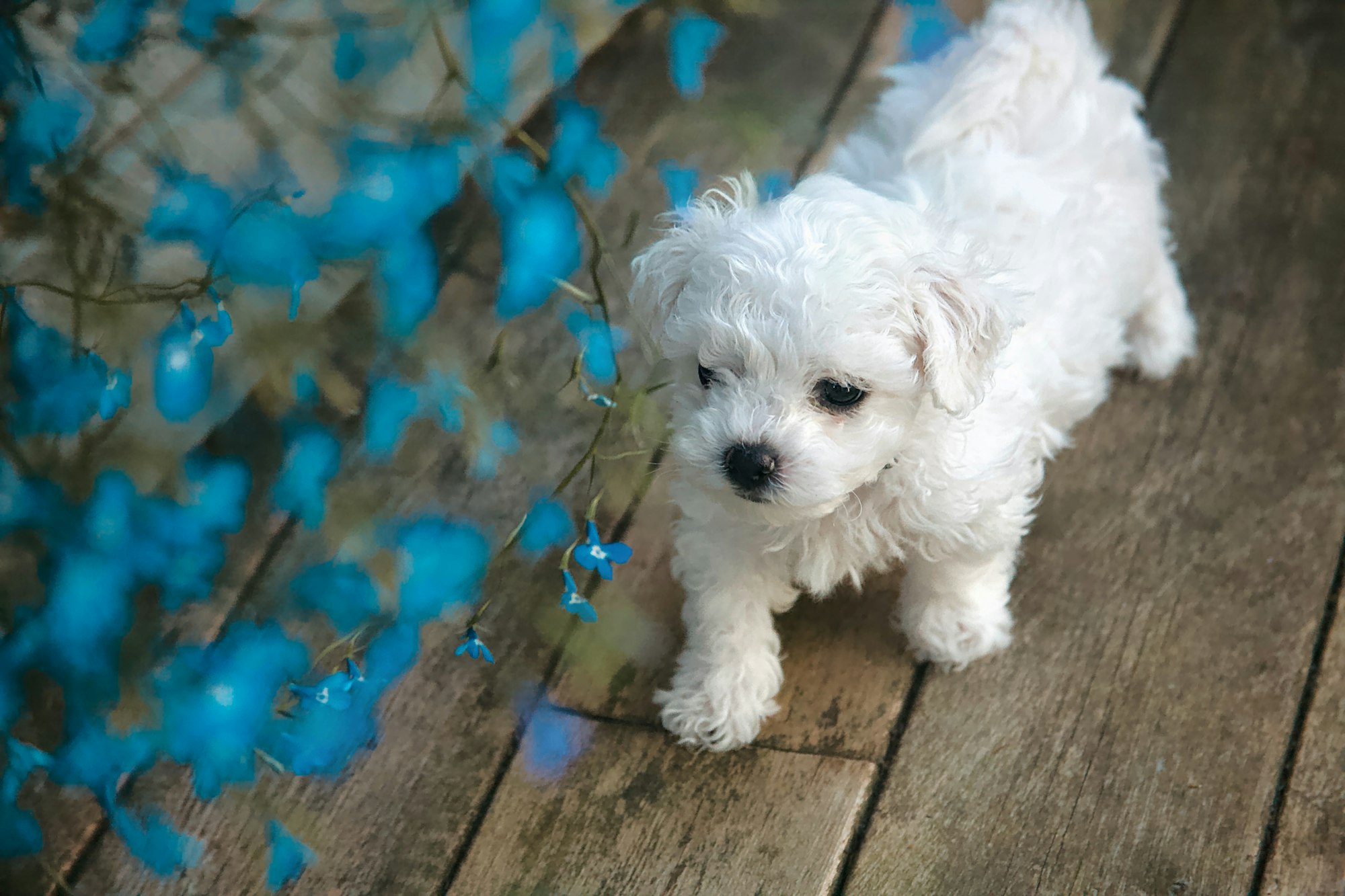
Bichon Frise Nutrition
A balanced and nutritious diet is essential for your Bichon Frise's overall health and well-being. Follow these nutrition guidelines to ensure they receive the best care:
- Quality Dog Food: Choose a high-quality dog food formulated for small breeds, ensuring it contains the necessary nutrients for their specific needs.
- Portion Control: Feed your Bichon Frise according to their age, size, and activity level to maintain a healthy weight.
- Fresh Water: Provide fresh and clean water at all times to keep your pup hydrated.
- Limited Treats: While treats are great for training and rewards, be mindful of portion sizes to prevent overindulgence.
A well-socialized, exercised, and adequately nourished Bichon Frise will lead a fulfilled and joyful life. In the following section, we'll address common misconceptions about allergies and the Bichon Frise, helping you make informed decisions about this lovable breed.
Bichon Frise and Allergies
The Bichon Frise is often hailed as a hypoallergenic breed, making it a popular choice for individuals with allergies. While no dog is entirely hypoallergenic, Bichon Frises are known to produce fewer allergens, such as dander, which can trigger allergic reactions.
Their tightly curled coat helps trap dander, reducing its distribution in the air. However, it's critical to note that individual reactions to allergens can vary. Regular grooming and maintaining a clean living environment can further minimize potential allergic reactions.
If you or a family member has allergies, spending time with a Bichon Frise before bringing one into your home can help gauge compatibility. Consultation with a healthcare professional is advised before making a decision.
Choosing the Right Puppy
When selecting a Bichon Frise puppy, it's essential to choose a reputable breeder who prioritizes the health and well-being of their dogs. Here are steps to guide your choice:
- Research: Thoroughly research breeders, seeking those with positive reviews and a commitment to responsible breeding practices.
- Visit the Breeder: Schedule a visit to the breeder's facility to assess the living conditions of the puppies and their parents.
- Health Checks: Ensure the puppies have received necessary vaccinations and health screenings.
- Ask Questions: Inquire about the puppy's temperament, socialization, and any genetic health issues.
- Meet the Parents: Interact with the puppy's parents to gauge their temperament and behavior.
By taking these steps, you can choose a Bichon Frise puppy that is healthy, well-socialized, and ready to become a cherished part of your family.
Introducing Your Bichon to Other Pets
Introducing a new Bichon Frise puppy to existing pets requires patience and careful planning. Follow these steps for a smooth and harmonious introduction:
- Neutral Territory: Choose a neutral location for the initial meeting, away from your existing pets' territories.
- Controlled Introduction: Use leashes and ensure both pets are under control during the first meeting to prevent any sudden reactions.
- Positive Associations: Reward calm behavior and positive interactions with treats and praise.
- Gradual Integration: Allow short, supervised interactions, gradually increasing the time together as both pets become more comfortable.
- Separate Spaces: Provide separate spaces and resources for each pet to prevent territorial disputes.
With time, patience, and positive reinforcement, your Bichon Frise can form strong bonds with existing pets, creating a harmonious and loving multi-pet household.
In the upcoming section, we'll explore travel considerations for your Bichon Frise, including tips for a safe and enjoyable journey together.
Traveling with Your Bichon Frise
Whether it's a weekend getaway or a cross-country adventure, including your Bichon Frise in your travel plans can be a delightful experience. Here are some tips to ensure a safe and enjoyable journey for both you and your furry companion:
- Plan Ahead: Research pet-friendly accommodations, attractions, and dining options at your destination.
- Pack Essentials: Bring your Bichon's favorite toys, food, water, bowls, leash, and waste bags.
- Secure Travel: Use a sturdy, well-ventilated carrier or safety harness for car travel, and ensure proper ventilation if flying.
- Frequent Breaks: Schedule regular stops for bathroom breaks, stretching, and hydration during road trips.
- ID and Documentation: Carry up-to-date identification, vaccination records, and any necessary travel permits.
- Health Check: Visit the veterinarian before traveling to ensure your Bichon is healthy and up-to-date on vaccinations.
- Motion Sickness: If your Bichon Frise is prone to motion sickness, consult your vet for possible remedies.
Traveling with your Bichon Frise can create wonderful memories and strengthen your bond. Just remember to prioritize their comfort, safety, and well-being throughout the journey.
Bichon Frise Fashion Trends
The Bichon Frise's adorable appearance has inspired a world of fashion trends, turning these furry companions into style icons. From casual wear to formal attire, Bichon Frise fashion offers endless options for expressing your pup's personality:
- Stylish Collars: Adorn your Bichon with a variety of new breed FI GPS dog collars, from classic leather to colorful patterns.
- Cozy Sweaters: Keep your pup warm and fashionable with a selection of cozy sweaters and hoodies.
- Designer Accessories: Elevate your Bichon's look with chic accessories like bowties, bandanas, and hair clips.
- Seasonal Apparel: Embrace the changing seasons with themed outfits, like Halloween costumes or holiday attire.
- Functional Gear: Combine fashion and function with raincoats, boots, and sunglasses for outdoor adventures.
- Custom Creations: Design unique clothing and accessories that reflect your Bichon Frise's individuality.
Bichon Frise fashion trends allow you to showcase your pup's style while keeping them comfortable and adorable. Whether it's a casual stroll or a special event, your Bichon can rock the latest trends and turn heads wherever they go.
As we wrap up our exploration of Bichon Frise fashion, we'll conclude with a summary of the key takeaways and an invitation to learn more.
Conclusion
In conclusion, the Bichon Frise is a captivating breed that combines a charming appearance with a loving personality. Their history as companions to sailors and traders has evolved into a contemporary role as beloved family pets. By understanding their needs, grooming requirements, and training strategies, you can ensure a fulfilling life for your Bichon Frise.
FAQs
Q1: Are Bichon Frises good with children?
- Absolutely! Bichon Frises are known for their friendly and gentle nature, making them great companions for kids.
Q2: Do Bichon Frises require a lot of grooming?
- Yes, their curly coat requires regular grooming to prevent tangling and matting.
Q3: Can Bichon Frises live in apartments?
- Yes, their small size and adaptability make them well-suited for apartment living.
Q4: Are Bichon Frises easy to train?
- Generally, yes. Their intelligence and eagerness to please make training enjoyable and rewarding.
Q5: Do Bichon Frises have any common health issues?
- Like all breeds, Bichon Frises can be prone to specific health issues such as dental problems and allergies.
Read more Bichon Frises articles:
